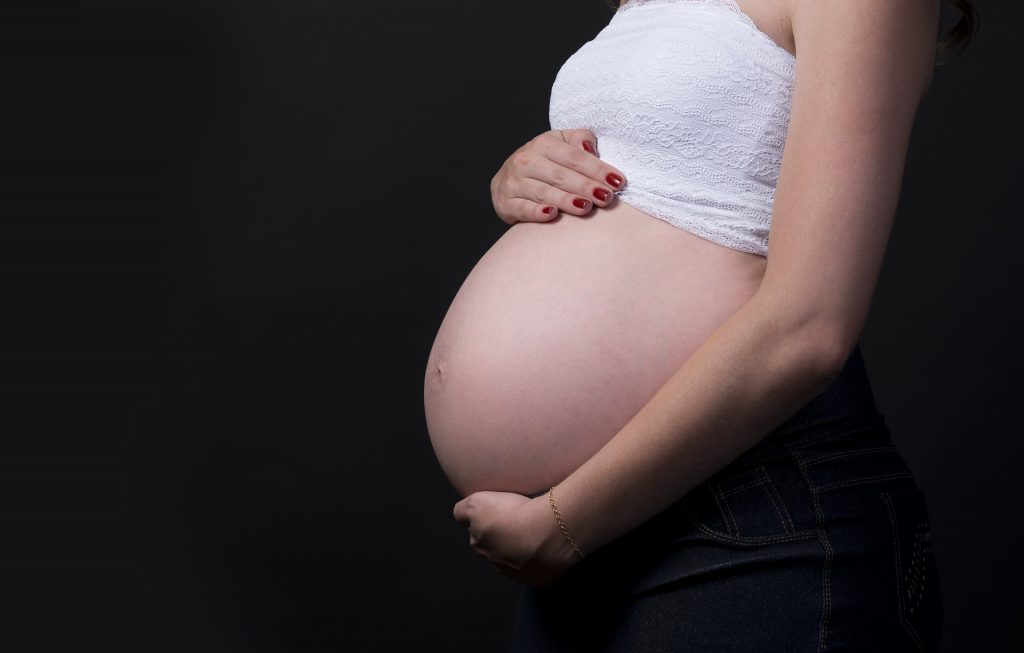The intensity of stress, anxiety and depression among pregnant women in seven Western countries, including Poland, was above normal during the onset of the COVID-19 pandemic. The results of international analysis of mental health determinants of pregnant women were published in November 2022 in Social Science & Medicine. They are the result of research conducted as part of the international I-COPE project led by Professor Marci Lobel from Stony Brook University in the USA. In Poland, the project included three researchers from the Institute of Psychology of the University of Silesia: Michalina Ilska, PhD; Anna Brandt-Salmeri, PhD; and Anna Kołodziej-Zaleska, PhD.
The COVID-19 pandemic has had unprecedented impact on public health, as well as social, psychological, and economic effects on people around the globe, especially vulnerable groups, such as pregnant women. The onset of the pandemic was especially stressful for pregnant women because of unknown effects of the SARS-CoV-2 virus on pregnancy and fetuses, and modifications to prenatal care and labor and delivery practices.
The study by the international I-COPE team is the first major research project to compare the stress and mental health of pregnant women in Western countries.
The study involved 8,148 pregnant women (average about 27 weeks gestation) from the United States, Poland, Germany, Switzerland, Spain, Italy and Israel. Countries differed significantly in the severity of pandemic-related and non-pandemic prenatal stress, as well as the incidence of clinically significant levels of anxiety and depression. Compared to other countries, Poland had the highest rates of depression and pandemic stress related to preparation for childbirth.
Although pregnant women in high-income Western countries experienced varying levels of stress as a result of the COVID-19 pandemic, research has confirmed that pandemic stress is a strong, common predictor of anxiety and depressive symptoms in people surveyed regardless of nationality. Among the seven countries, rates of moderate to severe anxiety symptoms ranged from 14.2% to 36%, and rates of probable depressive disorder ranged from 10.8% to 30.5%. The levels of anxiety and depressive disorders among women in Poland, Germany and the USA exceeded the global indicators known from analyses made before the pandemic. Pregnant women: younger or expecting their first child, those with high-risk pregnancies, and those with limited access to fresh air experienced higher levels of stress, and high stress predicted mood disorders.
Professor Marci Lobel and colleagues point out that many studies before the pandemic (including those that looked at other traumatic social events such as natural disasters or terrorist attacks) also indicate that prenatal stress is a risk factor for adverse changes for the mother, fetus, infant and development of the child. However, international comparisons of these effects are rare, and the opportunity to study them in the context of a global health crisis, when stress and its consequences are intensified, is unparalleled.
The authors conclude that the results of the I-COPE study confirm that pandemic stress is a strong, common predictor of anxiety and depressive symptoms in pregnant women. They also add that the results “can be used to inform research and clinical interventions to protect against adverse consequences of prenatal maternal stress, anxiety, and depression for mothers and their children”.
The publication gained the interest of the world media, information about the research appeared, among others, in an American newspaper “Newsday” https://www.newsday.com/news/health/coronavirus/stony-brook-study-pregnant-women-pandemic-stress-vj7pvjqh and MedicalPress: https://medicalxpress.com/news/2022-11-threats-covid-significant-anxiety-depression.html
More on the research:
Lobel, M., Preis, H., Mahaffey, B., Schaal, N. K., Yirmiya, K., Atzil, S., Reuveni, I., Balestrieri, M., Penengo, C., Colli, C., Garzitto, M., Driul, L., Ilska, M., Brandt-Salmeri, A., Kołodziej-Zaleska, A., Caparros-Gonzalez, R. A., Castro, R. A., La Marca-Ghaemmaghami, P., & Meyerhoff, H. (2022). Common model of stress, anxiety, and depressive symptoms in pregnant women from seven high-income Western countries at the COVID-19 pandemic onset. Social science & medicine (1982), 315, 115499. https://doi.org/10.1016/j.socscimed.2022.115499).






